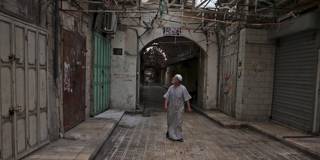European Union financial institutions have poured €1.4 billion into Palestine in an attempt to kick-start economic development. But with the possibility of a negotiated Israeli-Palestinian peace seemingly remote, Europe urgently needs a new aid model that better matches realities on the ground.
BRUSSELS – The European Union’s financial institutions are increasingly focusing on Palestine in order to help spur sustainable development, create jobs, promote growth, and support the post-pandemic recovery. But despite massive flows of investments – mostly in the form of loans to the Palestinian private sector – the EU continues to ignore the structural obstacles to Palestine’s development. Instead, its assistance props up the Palestinian banking system and sustains a broken economy under occupation.

BRUSSELS – The European Union’s financial institutions are increasingly focusing on Palestine in order to help spur sustainable development, create jobs, promote growth, and support the post-pandemic recovery. But despite massive flows of investments – mostly in the form of loans to the Palestinian private sector – the EU continues to ignore the structural obstacles to Palestine’s development. Instead, its assistance props up the Palestinian banking system and sustains a broken economy under occupation.